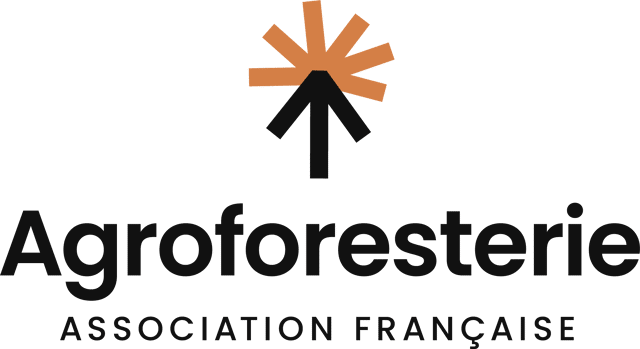La durabilité
Construire des filières durables dès aujourd'hui, c'est permettre aux producteurs, aux torréfacteurs et aux chocolatiers de se projeter demain. La durabilité, c'est comprendre l'impact de nos manières de faire et de nos achats, pour assurer un travail justement rémunéré dans un environnement préservé.
Notre objectif, dans un monde dont les capacités en ressource et à absorber nos pollutions arrivent à leur fin ? S’inscrire dans une dynamique régénérative et limiter nos impacts partout où cela est possible, avec des solutions basées sur la nature et surtout, avec vous.
Les enjeux de nos filières
Les producteurs évoluent dans un environnement de plus en plus complexe, avec une rémunération décorrélée des coûts de production, mettant en danger nos filières. Pour que nos filières soient durables et permettent à chacun de s'épanouir, les enjeux sont sociaux, environnementaux et économiques. On imagine encore trop peu l'impact de nos achats, et sous-estimons notre capacité à construire des filières durables et qui permettent à chacun de s'épanouir.

Le changement climatique
À lui seul, il rend plus qu'incertain l'avenir des producteurs de café et de cacao. Nous imaginons des transitions vers de nouveaux modèles agricoles, moins émissifs et plus durables. Nous soutenons et développons des filières régénératives, soit en valorisant les meilleures pratiques, soit en proposant des transitions agroécologiques.

La rémunération
L'augmentation des coûts de production agricoles et une main d'œuvre de plus en plus rare dans de nombreuses régions du monde complexifient encore l’équation. Le métier de producteur est de moins en moins attractif. Chacun doit être rémunéré à la hauteur de son travail pour que nos filières gardent leur attractivité.

Les prix
Face à la volatilité du marché boursier, les producteurs et les torréfacteurs peinent à investir pour leur avenir. Un juste prix d'achat et de vente est essentiel. Comment valoriser son produit, sur toute la chaîne de valeur, en tenant compte des coûts de production locaux ?

La consommation
Pour répondre à ces enjeux, les torréfacteurs, les chocolatiers et les consommateurs doivent être conscients de l’impact de leurs achats. La durabilité, c'est aussi de notre côté du globe.
3 chiffres à retenir
Pour comprendre l'urgence de s'adapter au changement climatique et de rendre la filière attractive pour les jeunes générations, par l'épanouissement des producteurs.
50
50% des surfaces cultivables d'Arabica amenées à disparaître d'ici 2050.
75
75% des émissions de GES du cacao sont dues à la déforestation.
55
55 ans, pour l'âge moyen d'un producteur des filières café et cacao.
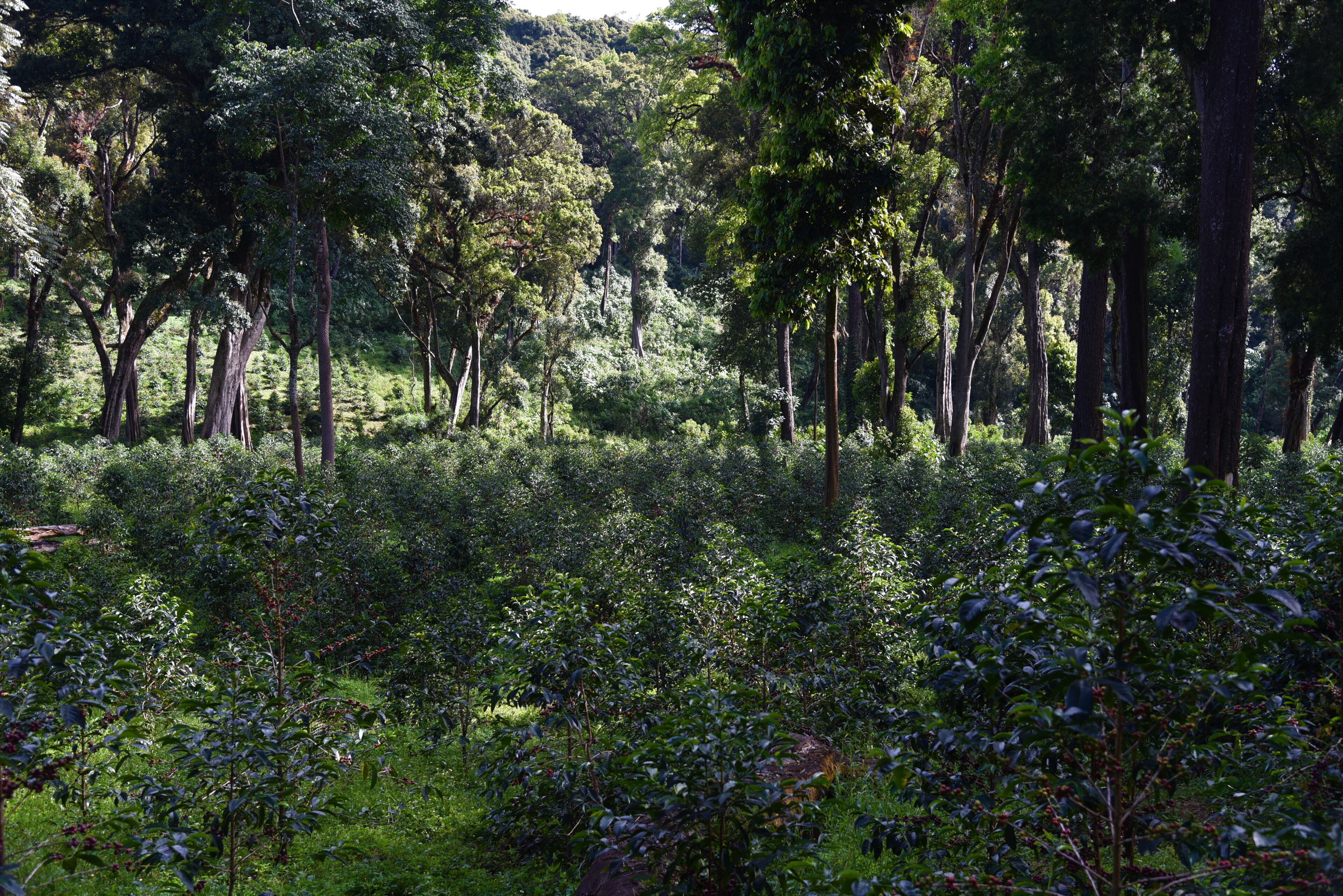
Notre objectif : la transparence
Traçabilité
De la ferme jusque chez vous, vous donner accès à toutes les données sur vos produits pour mieux les comprendre

Juste rémunération
Par nos agences à l'origine, qui connaissent le mieux le travail des producteurs, payer au prix juste en toute transparence.

Pratiques agricoles
Valoriser les meilleures pratiques et accompagner les agriculteurs vers des pratiques régénératives.

Transport décarboné
Notre ambition ? D'ici 2030, que tous nos cafés, ou presque, soient acheminés en Europe à la voile !

Qualité en tasse
La plus belle façon de valoriser le travail et le savoir-faire du producteur auprès du consommateur.
Sans vous, on ne fait rien !
Nous développons des filières café et cacao durables, mais nous ne sommes qu’un maillon de nos filières. Producteurs, artisans torréfacteurs et chocolatiers : vous en êtes les piliers.
Nous ne sommes sûrement pas parfaits, mais nous agissons chaque jour à l'amélioration de nos achats et des produits que nous vous proposons. Dans cette démarche, vos réflexions et vos retours sur notre travail sont essentiels.
Ils nous permettent d'agir au plus près des producteurs, à l'origine. Là où nous gérons le sourcing de nos produits en direct, grâce à nos agences sur le terrain.
Vers des fermes régénératives et un transport décarboné
Des pratiques durables sont pour nous au cœur de l’indépendance et de la résilience des producteurs. Face aux chocs énergétiques ou d’approvisionnement que nous vivons ces 10 dernières années, assurer une moindre dépendance des producteurs vis-à-vis du système mondialisé des intrants nous parait primordiale. C’est pourquoi nous focalisons nos efforts sur des solutions basées sur la Nature.
De telles solutions ont d’autres avantages puisqu’elles produisent des externalités positives pour notre environnement et que vous pourrez valoriser auprès de vos marchés.
Modèle traditionnel
Émission des GES
Le café est la 6ᵉ matière agricole la plus émettrice de CO2 dans le monde.
Destruction des habitats
Par la déforestation et le besoin toujours plus grand d'espace de culture.
Destruction des sols
L’agriculture participe au changement d’usage des sols qui est le 1ᵉʳ vecteur d’effondrement de la biodiversité.
Pollution de l’eau
Par l'irrigation déraisonnable et le mauvais traitement des eaux usées.
Transport conventionnel
Très émetteur en carbone, et donc polluant.

Modèle régéneratif
- Stockage des GES
Nous pouvons stocker du CO2 grâce au modèle agroforestier - Réserve de biodiversité
Préserver la biodiversité, toujours grâce au modèle agroforestier - Préservation de la vie des sols
Des sols préservés, c'est une capacité de résilience beaucoup plus grande face au changement climatique - Limitation des eaux usées
Notamment dans le café, avec des traitements post-récolte différents (process honey, nature) - Transport à la voile
Parce que les efforts ne s'arrêtent pas à la ferme, il est temps de décarboner le transport de nos achats
Comment choisir des produits + durables ?
Des critères de durabilité pour mieux choisir vos produits
Pour répondre à vos exigences, nous avons mis en place un système de filtres pour chacune de nos offres de cafés, cacaos ou d'équipements. Parmi eux : la possibilité de filtrer nos cafés transportés à la voile, nos cafés certifiés ou de choisir un certain niveau d'agroforesterie.
Voir nos cafésUn maximum de traçabilité
Une fois sur la fiche d'un produit, vous retrouvez toutes les informations de traçabilité en notre possession. Dès que cela est possible, nous vous proposons des liens pour en savoir plus sur l'origine, la ferme et le producteur.
Voir nos cafésNos analyses de qualité
Plus bas sur la page, nous rendons les résultats de nos analyses de qualité accessibles. Ces analyses sont réalisées par nos équipes à Mérignac et dans nos agences, à l'origine.
Voir nos cafésEt pour l'équipement ?
Pour l'équipement, au-delà de toutes les informations disponibles sur le produit et la marque, nous avons mis en place une "note Belco", afin de valoriser les pratiques RSE de nos partenaires Équipement.
Voir notre offre d'équipements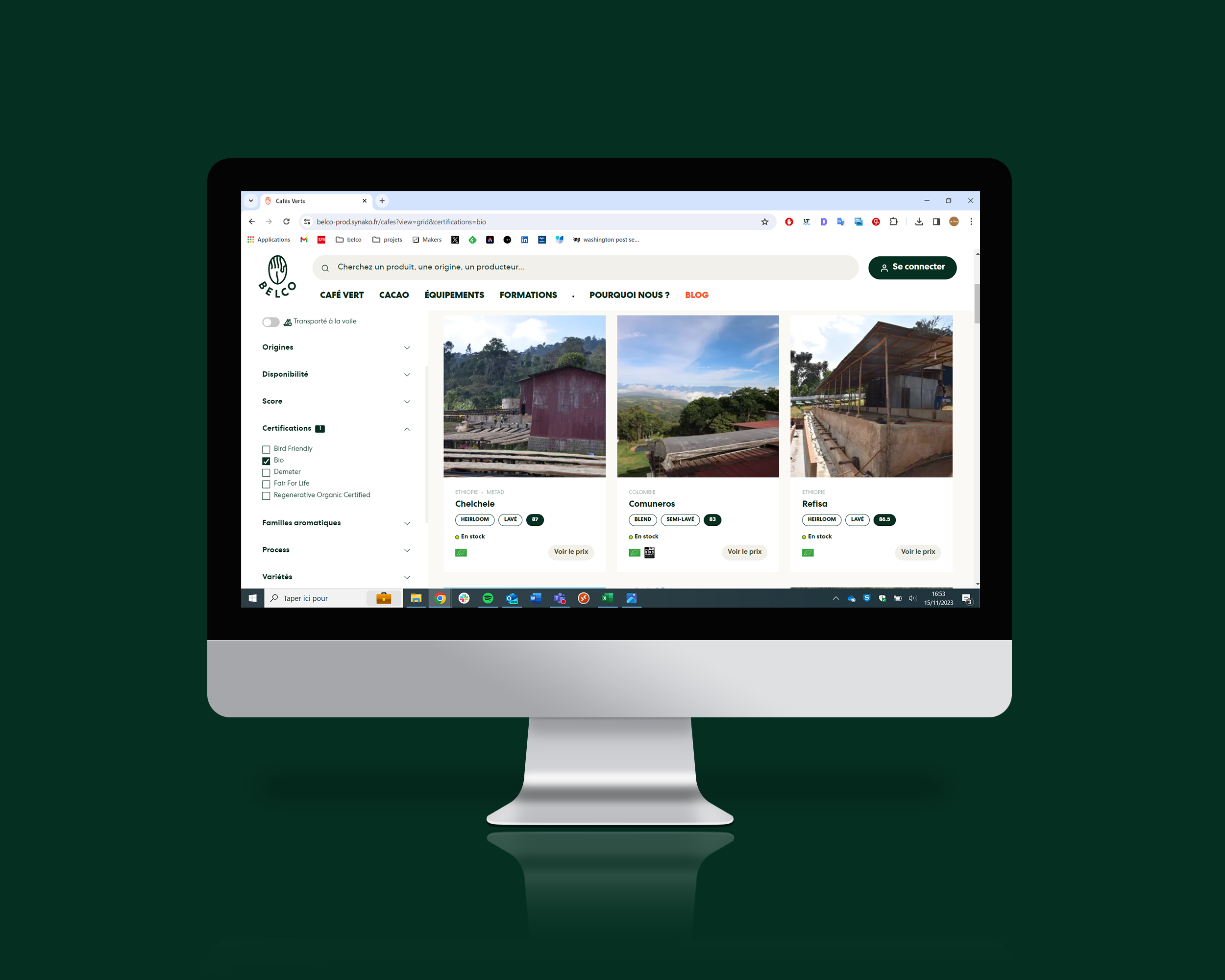


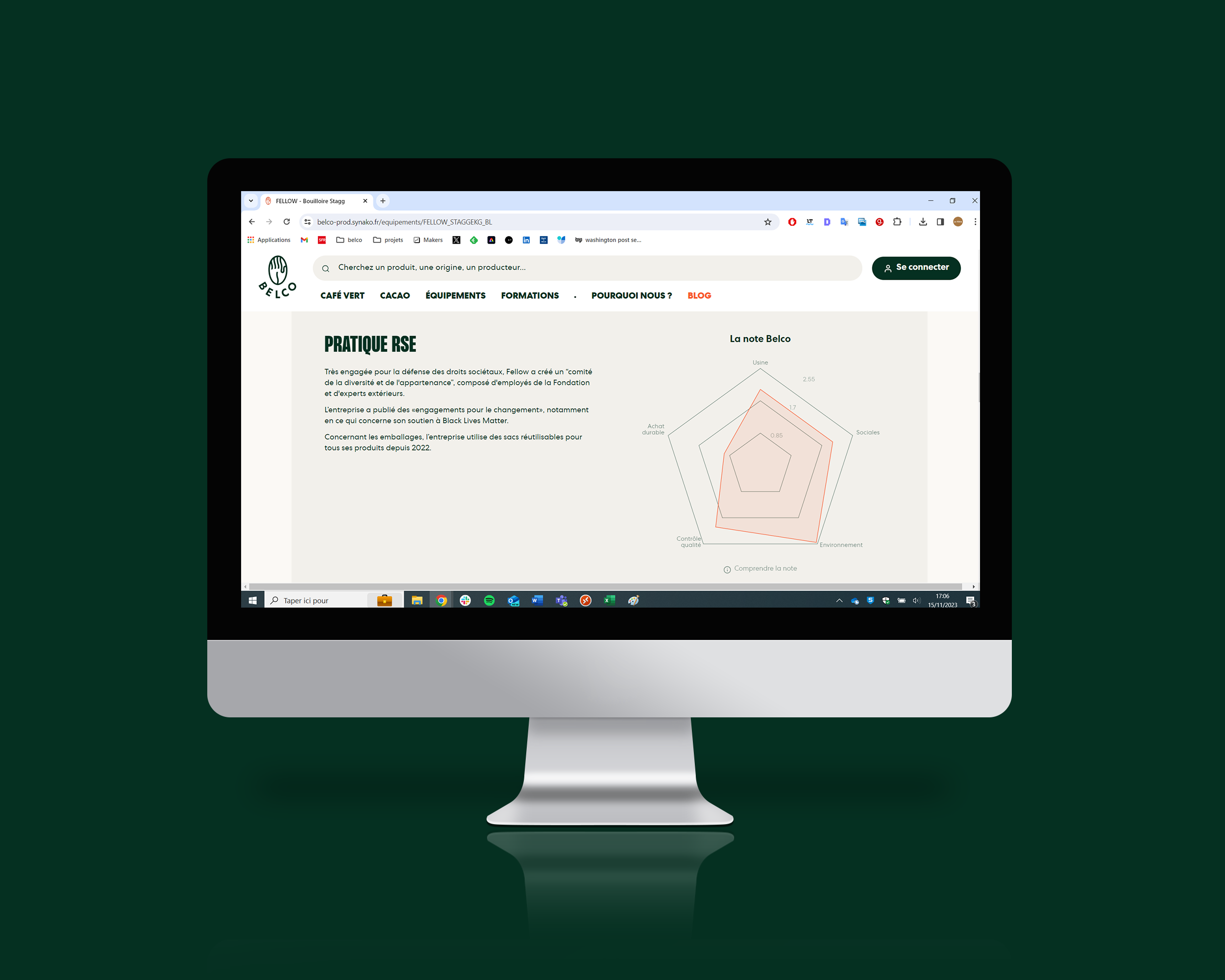
Nos partenaires
Développer des filières régénératives ne se fait pas seul. C'est un travail collectif, mené avec les acteurs de nos filières, des producteurs aux consommateurs. Nous nous entourons aussi d'autres expertises pour réaliser nos ambitions. Associations, entreprises et centres de recherche, nous construisons des collaborations de long terme pour construire un réseau définitivement tourné vers le seul avenir possible.





